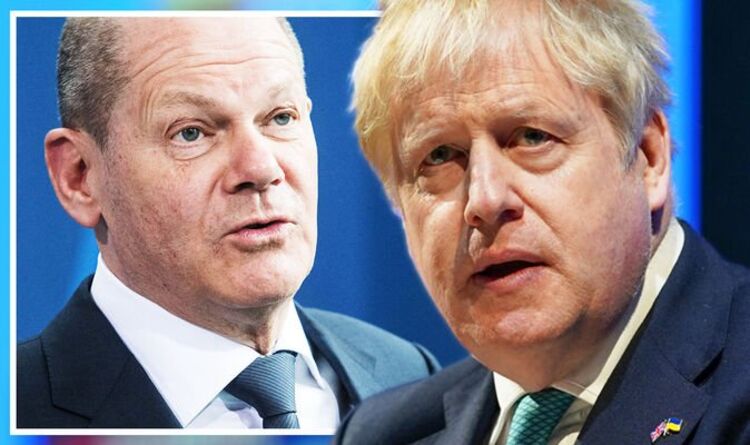Ukraine: Kira Rudik calls upon the West for more military aid
We use your sign-up to provide content in ways you’ve consented to and to improve our understanding of you. This may include adverts from us and 3rd parties based on our understanding. You can unsubscribe at any time. More info
Widely-circulated newspaper Tages-Anzeiger has described the UK as being in “crisis”. Writer Peter Nonnenmacher commented in its pages that because of Brexit, “British foreign trade and London’s diplomatic influence have diminished significantly”. On the economic front, Mr Nonnenmacher said Brexit meant the UK, amid fears of rising living costs, “is finding it harder than other countries to get back on its feet economically”.
He pointed to reports of falling trade, but avoided mention of inflation, which suggests London and Brussels are, at worst, on a level-footing or, at best, that the balance actually tips in the UK’s favour.
The latest figures on TradingEconomics show UK inflation reached 6.2 percent in February.
In the eurozone, the average figure for March was an all-time high of 7.5 percent, well above predictions.
Belgium’s figure was higher still, at 9.3 percent, suggesting Britain could be faring much worse than it is.


Independent economist Julian Jessop, writing in the Telegraph, described attempts to brand inflation and other financial woes on Brexit as “cobblers”.
Mr Nonnenmacher went further, however, suggesting Britain’s position on the world stage was also now less significant because of Brexit.
He wrote: “For all its claims to ‘lead’ the West in resisting Russia, the political leadership in London appears quite isolated.
“Surprised by the will for unity and the relatively swift actions of EU governments, the British have been able to exert separate influence only to a limited extent.”
READ MORE: Children speaking in different accents after lockdown TV time


He also claimed “much criticism has already been triggered by the fact that, despite all the election promises of 2019, the Government reduced the size of the domestic armed forces as well as that of development aid”.
The connection here to Brexit appears, however, to be weak given the Government was reducing the size of the country’s armed forces long before the referendum of 2016.
Despite these shortcomings, Ukrainian President Volodymyr Zelensky has described Brexit Britain as a “reliable” and “powerful” ally in his country’s efforts against Russia.
DON’T MISS:
Zelensky’s call for no fly zone rejected [OPINION]
Putin’s army from ‘mysteriously weak’ to ‘brutal’ [REVEAL]
People sensationally blame Brexit for Russia’s chilling invasion [REPORT]

In late March, he told reporters: “It is important that there are real, reliable, powerful, not theoretical, but substantive friends like the United Kingdom, like Prime Minister Boris Johnson.”
It is also Britain, rather than the EU, which is tipped to rebuild a key Western alliance with the Middle East following Russia’s invasion of Ukraine.

Cornerstone Global Associates founder Ghanem Nuseibeh recently told Express.co.uk Brussels has spent decades failing to realise the strategic importance of pro-Western countries in the Middle East.
He added it was now Brexit Britain that was most capable of “re-balancing the relationship” between these states and the West.
Additional reporting by Monika Pallenberg.
Source: Read Full Article
